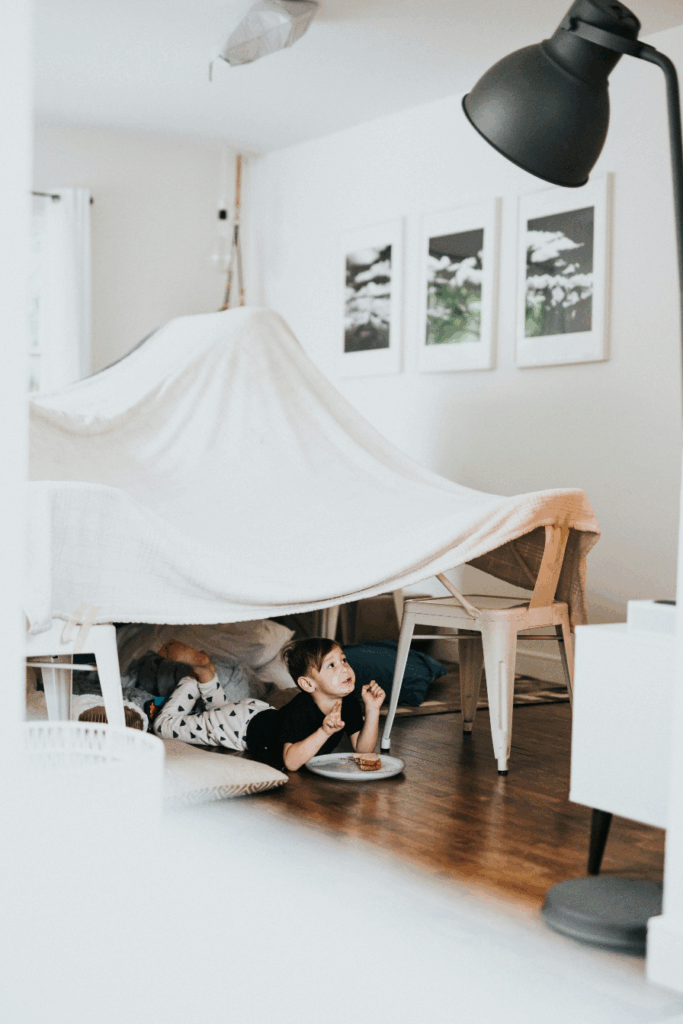Sensory overload happens when a child with special needs becomes overwhelmed by sensory input, such as loud noises, bright lights, or crowded spaces. This can lead to distress, meltdowns, or withdrawal. As a parent, caregiver, or professional working with special schools, allied health organisations, or play centres in Melbourne Western Suburbs, including Melton, Werribee, Caroline Springs, and Truganina, you can learn to recognise the signs of sensory overload and use practical strategies to help your child. This guide explains how to identify sensory overload, calm your child during an episode, create a supportive environment, and prevent future occurrences.
Recognising Signs of Sensory Overload
Understanding the signs of sensory overload is the first step to helping your child. Children with special needs, such as autism spectrum disorder or sensory processing disorder, often react strongly to sensory input. You need to watch for physical, behavioural, and emotional signs that indicate your child is overwhelmed.
Physical signs include covering ears, squinting, or flinching at lights or sounds. For example, if your child is in a noisy play area in Melton and starts pressing their hands over their ears, they may be reacting to loud sounds. Other physical signs include fidgeting, rocking, or clenching their fists, which show discomfort. Notice these cues during everyday activities, like a visit to a childcare centre, to understand what triggers your child.
Behavioural signs can include meltdowns, tantrums, or sudden withdrawal. Your child might scream or cry in a crowded space, like a busy shopping centre in Werribee, or refuse to participate in group activities. Some children may shut down, becoming quiet or unresponsive, as a way to cope. For instance, if your child stops engaging during a play session in Caroline Springs, it could signal sensory overload. Track these behaviours to identify patterns, such as specific times or places where they occur.
Emotional signs are also important. Your child might seem anxious, irritable, or scared when overwhelmed. For example, they may cling to you or express fear during a loud event in Truganina. These emotions can be hard for children with special needs to express, so pay attention to changes in their mood. You can ask simple questions, like “Are you feeling okay?” or use visual aids, such as emotion charts, to help them communicate.
To improve your ability to recognise these signs, keep a journal of when and where overload happens. Note the environment, like a noisy play centre, and what your child was doing. Share this information with caregivers or allied health professionals to get their input. Over time, you’ll learn your child’s unique signs, making it easier to step in before a full meltdown occurs.

De-escalation Strategies
When your child experiences sensory overload, you need strategies to help them calm down quickly. These methods focus on reducing sensory input and providing comfort, tailored to your child’s needs. Acting promptly can prevent escalation and help your child feel safe.
One effective strategy is to remove your child from the overwhelming environment. If they’re in a loud play area, guide them to a quieter space, like a calm corner or a less crowded room. Move slowly and speak in a soft voice to avoid adding to their stress. For example, say, “Let’s take a break,” and lead them away. If leaving isn’t possible, create a temporary shield, like using a blanket to block bright lights or offering noise-cancelling headphones.
Teach your child calming techniques, such as deep breathing. Show them how to breathe in for four seconds, hold for four, and breathe out for four. Practice this when they’re calm, so they can use it during overload. For instance, during a visit to a childcare centre in Werribee, you can practice breathing together before a group activity. You can also offer sensory tools, like a weighted blanket or fidget toy, which help ground your child. These tools are often used in sensory playground settings and can be very effective.
Distraction can also work. Offer a favourite activity, like playing with a sensory toy or listening to calming music through headphones. For example, if your child is overwhelmed at a play centre in Caroline Springs, give them a soft toy to squeeze. This redirects their focus and reduces anxiety. Make sure the activity is familiar, as new tasks can add stress during overload.
Stay calm yourself. Your child picks up on your emotions, so speak gently and avoid rushing them. For example, if they’re upset in a busy space in Truganina, sit with them and model calm behaviour, like slow breathing. This reassures them that they’re safe. If you’re unsure how to respond, consult with allied health professionals or special schools for strategies specific to your child’s needs.
Finally, use positive reinforcement after the episode. If your child calms down using a breathing technique, praise them, saying, “You did well calming down.” This builds their confidence. Practice these strategies regularly to help your child manage overload effectively.

Creating a Calm Environment
A supportive environment can reduce the likelihood of sensory overload. You can set up spaces at home, school, or childcare centres that help your child feel comfortable and safe. These spaces should minimise sensory triggers and provide predictability.
Start by assessing your child’s environment. Identify elements that cause overload, like bright lights or loud noises. For example, if fluorescent lights in your home bother your child, replace them with softer lighting or use dimmable lamps. In a childcare centre in Melton, ask staff to adjust lighting or reduce background noise during play sessions. Small changes, like closing curtains or turning off loud music, can make a big difference.
Use visual schedules to create predictability. Children with special needs often feel anxious when routines change. Create a picture-based schedule showing daily activities, like playtime, meals, and rest. For instance, include a picture of a swing for a sensory play session. Display this schedule at home or share it with caregivers in Werribee to maintain consistency. Knowing what comes next helps your child feel secure.
Set up a designated calm space. This could be a corner with soft cushions, a weighted blanket, or sensory toys, like a stress ball. In a special school in Caroline Springs, staff might create a similar space for breaks. Teach your child to go to this space when they feel overwhelmed. For example, say, “If it gets too loud, you can sit here.” Practice using the space during calm moments to make it familiar.
Limit sensory input during activities. For instance, if your child attends a play centre in Truganina, ask for sessions with fewer children to avoid crowding. You can also use tools like noise-cancelling headphones or sunglasses to reduce sensory input. These tools help your child stay comfortable in busy settings.
Work with caregivers, teachers, or allied health professionals to ensure all environments are supportive. For example, share your child’s triggers and preferred calming tools with a childcare centre. This ensures consistency across settings, helping your child feel safe wherever they are.

Preventing Future Episodes
Preventing sensory overload involves planning ahead and teaching your child skills to manage sensory input. By preparing for potential triggers and building coping strategies, you can reduce the frequency and intensity of episodes.
Start by identifying your child’s triggers. Keep a log of when overload happens, noting the time, place, and activity. For example, if your child gets overwhelmed during busy play sessions in Melton, note the specific triggers, like loud voices or sudden movements. Share this log with allied health professionals or special schools in Werribee to develop a prevention plan.
Prepare your child for new environments. Before visiting a play centre in Caroline Springs, explain what to expect, like the types of activities or noises they might encounter. Use simple language, such as, “There will be other kids playing, but you can use your headphones.” You can also visit during quieter times to ease them into the setting.
Teach your child self-regulation skills. For example, practice deep breathing or counting to ten when they’re calm, so they can use these techniques during challenging moments. Role-play scenarios, like pretending to be in a noisy space in Truganina, and practice calming down together. This builds their ability to manage sensory input independently.
Use sensory diets, which are personalised plans of sensory activities to help your child stay regulated. For example, include activities like swinging or squeezing a stress ball before a potentially overwhelming event. Allied health professionals can help create a sensory diet that suits your child’s needs, which you can implement at home or in childcare centres.
Involve your child in sensory play disability support programs, available in Melbourne Western Suburbs. These programs use activities like climbing or tactile tasks to help your child process sensory input in a controlled way. By participating regularly, your child learns to handle sensory challenges better, reducing overload episodes.
Finally, communicate with everyone involved in your child’s care. Share your prevention strategies with caregivers, teachers, or staff at special schools. For example, if noise-cancelling headphones work, ensure they’re available at school or play sessions. Consistent support across settings helps prevent overload and supports your child’s growth.

Working with Professionals and Community Resources
Professionals can support your efforts to manage sensory overload. Allied health organisations and special schools in Melbourne Western Suburbs offer expertise in sensory processing. For example, occupational therapists can assess your child’s sensory needs and recommend strategies, such as sensory diets or calming tools. These professionals provide person centred care, focusing on your child’s specific needs.
Caregivers and childcare centres can reinforce your strategies. Share your child’s triggers and calming techniques with them to ensure consistency. For instance, if a visual schedule helps at home, ask a childcare centre in Melton to use one. This creates a unified approach across settings.
Community resources, like respite sensory play programs in Werribee, provide opportunities for your child to practice sensory regulation in a supportive environment. These programs, often covered by NDIS funding (except for birthdays and private hire), help your child build skills through structured activities. Check with local organisations for programs that suit your child’s needs.

Supporting Your Child’s Sensory Needs
Managing sensory overload for your child with special needs helps them feel safe and confident in their daily life. By recognising signs, using de-escalation strategies, creating calm environments, and preventing episodes, you give them tools to handle sensory challenges. These skills develop slowly, but with consistent effort, you’ll see improvement. Engage your child in sensory play activities to practice sensory regulation in a fun way.
Work with professionals through one-on-one support sensory play sessions for person centred care that addresses your child’s specific needs. During school breaks, consider school holiday sensory programs in Melbourne Western Suburbs for a supportive, inclusive experience. Most programs, except birthdays and private hire, align with NDIS funding, making them accessible. Get in touch with Sensory Play Centre in Melton, Werribee, Caroline Springs, or Truganina, and help your child thrive today.
Call now to find out more!
